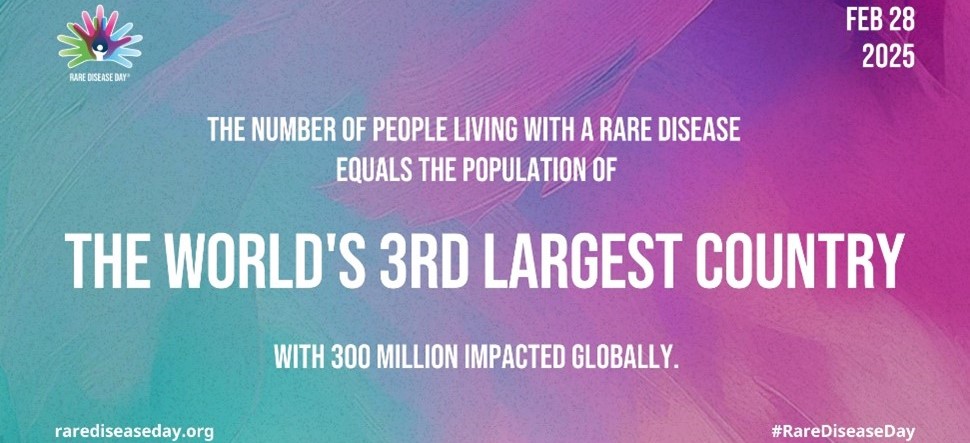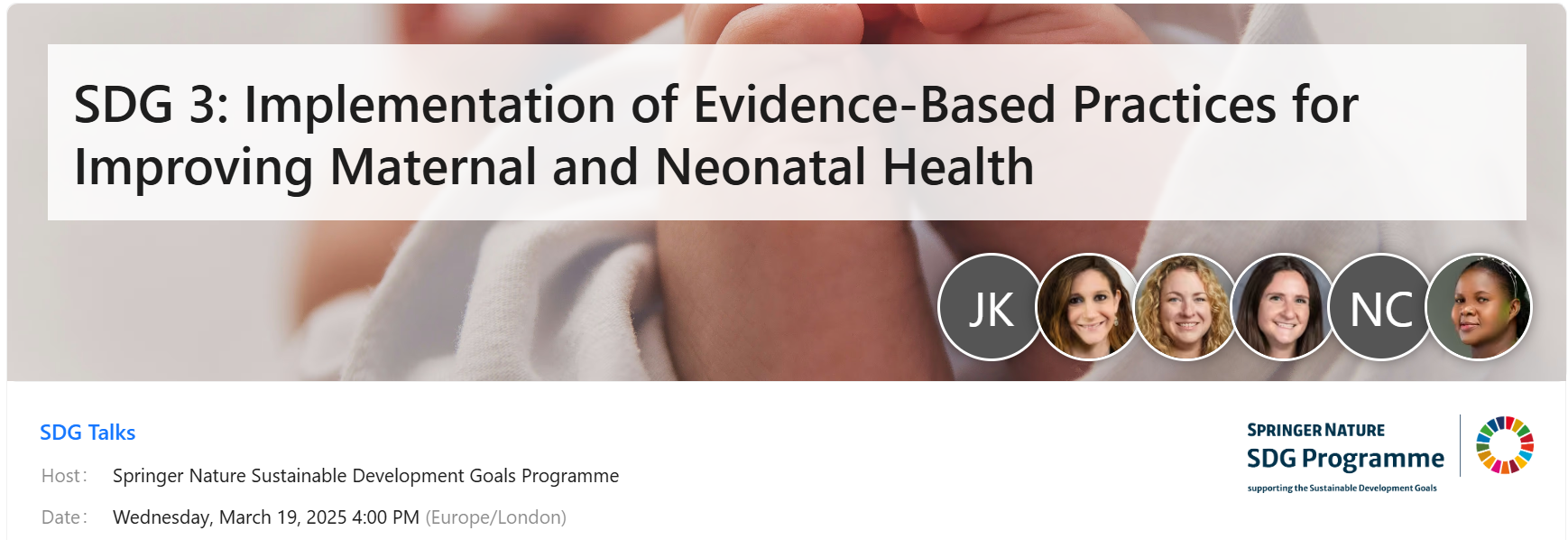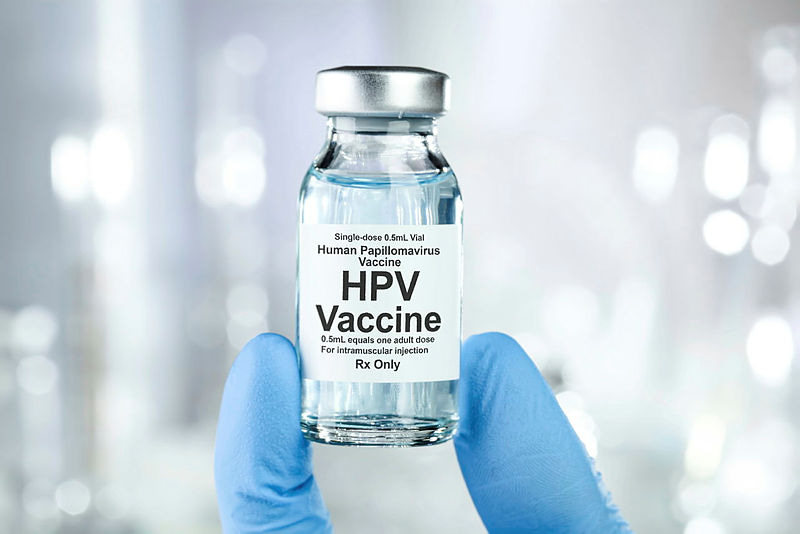SDG3 Newsletter: Diseases
Published in Sustainability, General & Internal Medicine, and Public Health

Use these links to navigate to a section! This newsletter covers:
- Sickle cell disease: impact on the Black community
- Rare Disease Day
- World Cancer Day
- Meet the Editors of Implementation Science Communications
- A history of Journal of Cannabis Research
- HPV vaccination progress
- Maternal health and Neonatal Health webinar: sign up now
Sickle Cell Disease and its impact on the Black community
Check out this interesting blog written recently by members of Springer Nature's Black Employee Network. They focus on social, medical and policy approaches to improve the lives of those within the Black community affected by sickle cell disease.
Rare Disease Day
This Friday 28 February is Rare Disease Day. Read this blog to discover relevant journal articles, clinical trials, blogs and Q&As with researchers.

World Cancer Day: person-centred care

Read this blog on the new new 2025-2027 theme for World Cancer Day, ‘United by Unique.’ Here you can find related blogs, articles, Collections and clinical trials.
Don't forget to check out this blog on the highly-accessed Collection, Fibrosis and Cancer Intersection, published in Journal of Translational Medicine.
Meet the Editors of Implementation Science Communications
.png)
Read Dr Elvin Geng's recent Q&A announcing his position as co-Editor-in-Chief of Implementation Science Communications. As an infectious disease physician involved in the public health HIV response and in AIDS research, Dr Geng discusses the current context in the US and the implications it may have for the global HIV response.
You can also read this Q&A for World AIDS Day, where Dr Aaloke Mody, Associate Editor, shares his experiences working in the fields of HIV and AIDS.
A history of Journal of Cannabis Research

Explore this blog on the history of Journal of Cannabis Research to learn about the use of medical cannabis in treating disease and improving symptoms.
HPV Awareness Day is next week (4 March). Check out this blog that explains HPV vaccination progress and outlines areas for improvement in vaccination programmes.
Maternal and Neonatal Health webinar: sign up now
On 19 March we are hosting a free webinar on “Implementation of Evidence-Based Practices for Improving Maternal and Neonatal Health”. This webinar has some really interesting speakers, click the link to learn more and register.

Get involved!
Thank you to everyone who contributed to this newsletter. If you are a researcher or colleague who would like to be involved with our SDG3 initiatives, get in touch. To be notified of future SDG3 newsletters, follow me, Alice Coe, on Research Communities.
Follow the Topic
-
Implementation Science Communications

An official companion journal to Implementation Science and a forum to publish research relevant to the systematic study of approaches to foster uptake of evidence based practices and policies that affect health care delivery and health outcomes, in clinical, organizational, or policy contexts.
-
Journal of Cannabis Research

The Journal of Cannabis Research is an international, fully open access, peer-reviewed journal covering all topics pertaining to cannabis, including original research, perspectives, and protocols. Our goal is an accessible outlet for expert interdisciplinary discourse on cannabis research.
Your space to connect: The Primary immunodeficiency disorders Hub
A new Communities’ space to connect, collaborate, and explore research on Clinical Medicine, Immunology, and Diseases!
Continue reading announcementRelated Collections
With Collections, you can get published faster and increase your visibility.
Non-psychotropic cannabinoids in drug discovery and their therapeutic potential
The exploration of non-psychotropic cannabinoids is crucial for advancing the scientific understanding of their therapeutic potential and applications in drug discovery. As cannabinoid research continues to evolve, we are uncovering the multiple ways in which these compounds, including CBD (cannabidiol), interact either with cannabinoid receptors or with other targets to impact human health. The importance of this research is underscored by the growing interest in medical cannabis, particularly as it relates to cannabinoid therapy for various conditions.
Significant advances have already been made in this field. For instance, recent studies have demonstrated the efficacy of non-psychotropic cannabinoids in managing chronic pain, CNS diseases, inflammatory disorders and iperproliferative diseases, showcasing their potential as alternative therapies to conventional pharmaceuticals. Furthermore, the ongoing investigation into cannabinoid pharmacology has shed light on the mechanisms of action of these compounds, paving the way for more targeted and effective treatments. These breakthroughs not only contribute to the scientific community but also provide hope for patients seeking relief from debilitating conditions.
We invite researchers to contribute to this Special Collection. Topics of interest include but are not limited to:
• Extraction and analysis of non-psychotropic cannabinoids
• Biological activity and mechanisms of action of non-psychotropic cannabinoids
• Therapeutic applications of CBD
• Cannabinoid pharmacology and receptor interaction
• Drug discovery strategies involving cannabinoids
• Clinical trials of cannabinoid therapies
• Social implications of cannabinoid use
• Innovations in cannabinoid applications.
This Collection supports and amplifies research related to SDG 3, Good Health and Well-Being and SDG 9, Industry & Innovation.
All submissions in this collection undergo the journal’s standard peer review process. Similarly, all manuscripts authored by a Guest Editor(s) will be handled by the Editor-in-Chief. As an open access publication, this journal levies an article processing fee (details here). We recognize that many key stakeholders may not have access to such resources and are committed to supporting participation in this issue wherever resources are a barrier. For more information about what support may be available, please visit OA funding and support, or email OAfundingpolicy@springernature.com or the Editor-in-Chief.
Publishing Model: Open Access
Deadline: Apr 30, 2026
Advancing the Science and Metrics on the Pace of Implementation
The persistent 17-year span between discovery and application of evidence in practice has been a rallying cry for implementation science. That frequently quoted time period often implies that implementation needs to occur faster. But what do we really know about the time required to implement new evidence-based practices into routine settings of care. Does implementation take 17 years? Is implementation too slow? Can it be accelerated? Or, does a slower pace of implementing new evidence-based innovations serve a critical function? In many cases—pandemics, health inequities, urgent social crises—pressing needs demand timely implementation of rapidly accruing evidence to reduce morbidity and mortality. Yet many central tenets of implementation, such as trust, constituent inclusion, and adaptation, take time and may require a slow pace to ensure acceptability and sustained uptake.
To date, little attention and scant data address the pace of implementation. Speed is a rarely studied or reported metric in implementation science. Few in the field can answer the question, “how long does implementation take?” Answering that question requires data on how long various implementation phases take, or how long it takes to achieve implementation outcomes such as fidelity, adoption, and sustainment. Importantly, we lack good data on how different implementation strategies may influence the amount of time to achieve given outcomes.
To advance knowledge about how long implementation takes and how long it “should optimally” take, this collection seeks to stimulate the publication of papers that can advance the measurement of implementation speed, along with the systematic study of influences on and impacts of speed across diverse contexts, to more adequately respond to emerging health crises and benefit from emerging health innovations for practice and policy. In particular, we welcome submissions on 1) methodological papers that facilitate development, specification, and reporting on metrics of speed, and 2) data-based research (descriptive or inferential) that reports on implementation speed metrics, contextual factors and/or active strategies that affect speed, or the effects of implementation speed on important outcomes in various contexts.
Areas of interest include but are not limited to:
• Data based papers documenting pace of moving through various implementation phases, and identifying factors (e.g., implementation context, process, strategies) that affect pace of implementation (e.g., accelerators and inhibitors)
• Data based papers from multi-site, including multi-national, studies comparing pace of innovation adoption, implementation, and sustainment across various contexts
• Data based papers reporting time to implementation in the face of urgent social conditions (e.g., climate change, disaster relief) Papers on how to accelerate time to delivery of treatment discoveries for specific health conditions (e.g., cancer, infectious disease, suicidality, opioid epidemic)
• Data based papers on the timeliness of policy implementation, including factors influencing the time from data synthesis to policy recommendation, and from policy recommendation to implementation
• Span of time needed to: achieve partner collaboration, including global health partnerships adapt interventions to make them more feasible, usable, or acceptable achieve specific implementation outcomes (e.g., adoption, fidelity, scale-up, sustainment) de-implement harmful or low-value innovations, or to identify failed implementation efforts
• Effect of implementation pace on attainment of key outcomes such as constituent engagement, intervention acceptability or sustainability, health equity, or other evidence of clinical, community, economic, and/or policy benefits.
• Papers addressing the interplay between pace and health equity, speed and sustainability, and other considerations that impact decision-making on implementation
• Methodological pieces that advance designs for testing speed or metrics for capturing the pace of implementation
• This Collection welcomes submission of a range of article types. Should you wish to submit to this Collection, please read the submission guidelines of the journal you are submitting to Implementation Science or Implementation Science Communications to confirm that type is accepted by the journal you are submitting to.
• Articles for this Collection should be submitted via our submission systems in Implementation Science or Implementation Science Communications. During the submission process you will be asked whether you are submitting to a Collection, please select "Advancing the Science and Metrics on the Pace of Implementation" from the dropdown menu.
• Articles will undergo the standard peer-review process of the journal they are considered in Implementation Science or Implementation Science Communications and are subject to all of the journal’s standard policies. Articles will be added to the Collection as they are published.
• The Editors have no competing interests with the submissions which they handle through the peer-review process. The peer-review of any submissions for which the Editors have competing interests is handled by another Editorial Board Member who has no competing interests.
Publishing Model: Open Access
Deadline: Jun 30, 2026





Please sign in or register for FREE
If you are a registered user on Research Communities by Springer Nature, please sign in
This is all really cool, Alice! I've followed you so I can see all the new ones you send out :)
Thanks for this, Alice. Great to see all the hard work being done by our Publishers, Editors, and Authors to help achieve the SDG3 targets!
Read our 2024 round-up newsletter here!